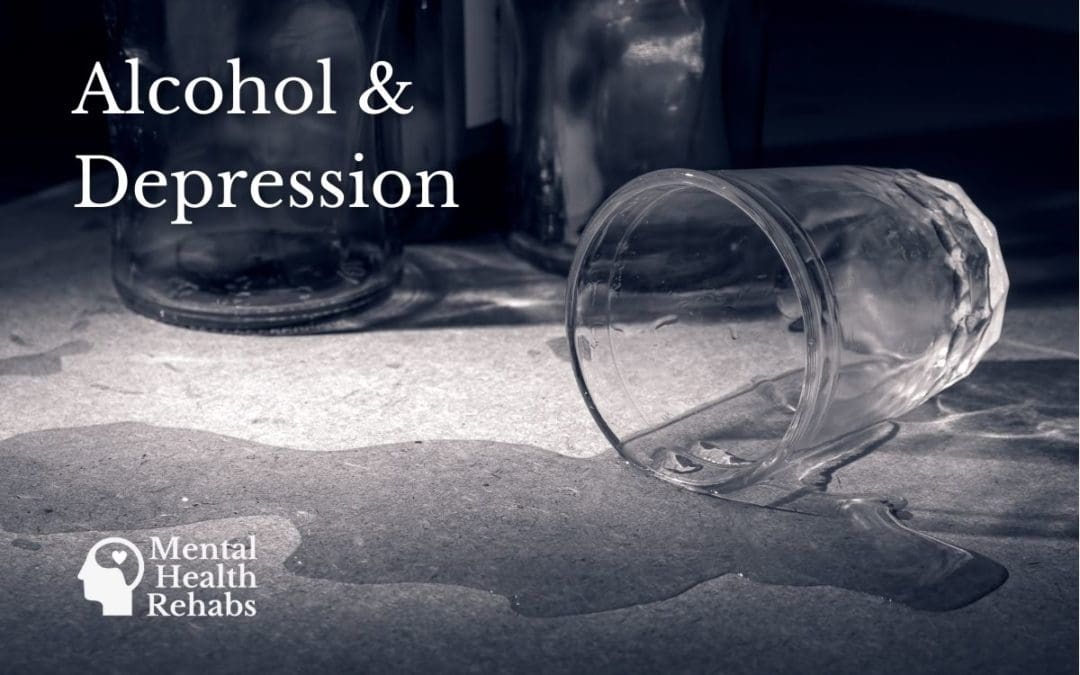For many people, a coping mechanism they lean on is alcohol. Some people resort to drinking to feel good, celebrate, and fit in. Conversely, some individuals opt for drinking when sad, escaping problems, curing their stressful week, and the list of reasons goes on. People with depression have used alcohol to ineffectively self-medicate for decades. But, can alcohol make depression worse?
One of the most common dual diagnoses in rehab centers is depression paired with an alcohol use disorder (AUD). Whether one triggers the other is a topic of debate. But, there’s no doubt that alcohol has a considerably negative impact on our mental health. Read on to learn the effects of alcohol on depression.
The Connection Between Alcohol and Depression
Approximately 280 million people, that’s 3.8% of the population, experience depression. Over 6% of adults deal with an alcohol use disorder, about 1 in 12 men and 1 in 25 women. Furthermore, over 600,000 people ages 12 and 17 have alcohol use disorders. Alcohol may momentarily suppress feelings of sadness or anxiety, but that won’t last. Most likely, once the effects of alcohol wear off, your depression symptoms may worsen.
At first, alcohol produces euphoria and excitement, but such feelings are short-lived. Alcohol is a depressant that affects the central nervous system (CNS) and the brain’s functionality. Studies suggest drinking often and heavily can increase your risk of developing a major depressive disorder (MDD). It can even exacerbate symptoms of pre-existing depression or anxiety.
While the verdict comes first, the truth is alcohol can lead to depressive symptoms and worsen depressive symptoms in those with a risk of depressive disorders. For many, alcohol-induced depression can last for up to four weeks. However, substance-induced depression can also turn into standalone depression even after the cessation of alcohol or other substances.
5 Ways Alcohol Makes Depression Worse
Between 30-50 percent of people with an alcohol use disorder experience depressive symptoms at any given time. Likewise, nearly one-third of people with depression deal with alcohol abuse. Studies even show that children with depression are more likely to develop drinking problems as teenagers. Besides the undeniable connection between both pathologies, alcohol can exacerbate depression symptoms in many ways, including:
- Lowering serotonin levels could help regulate moods, making people feel more depressed.
- Depressing the central nervous system can decrease breathing, heart rate, and loss of consciousness.
- Activating genes associated with depression and other mental illnesses increase the risk of seizures, depression, and manic-depressive episodes.
- Lowering folic acid levels contributes to brain age and the risk of Alzheimer’s disease.
- Disrupting sleep and altering the thought process, which could exacerbate depression symptoms.
According to the National Institute on Alcohol Abuse and Alcoholism (NIAAA), depression is a common side effect of alcoholism. And these two conditions can be incredibly dangerous. Those struggling with alcoholism and depression are at greater risk of attempting and committing suicide. Alcohol abusers are also more likely to engage in reckless behavior and impulsive acts.
Treatment for Co-Occurring Disorders
Treatment for alcohol use disorder and depression involves an integrated approach that addresses both conditions simultaneously. While treatment plans will vary by individual, they most likely include:
- Detox. To help people safely withdraw from alcohol in a controlled and comforting environment.
- Medications. Some people may become candidates for antidepressants to help both depression and alcohol addiction symptoms.
- Behavioral therapies. Cognitive-behavioral therapy (CBT) and dialectical behavioral therapy (DBT) are very common for dual diagnosis scenarios.
- Rehab. Depending on the severity of the addiction, people may benefit from attending a residential rehab program or an intensive outpatient program.
When to Seek Help for Alcoholism
Moderate drinking is not a cause of concern for most adults. But when increased drinking, problem drinking, alcohol dependence, and addiction have manifested in a person, it’s time to seek help to be contained and treated.
Depression is a frightening and sorrowful state. However, alcohol can make the symptoms of depression worsen, which can be detrimental to someone’s mental state. These two variables are tough to break, especially when one is alone. If you or a close relative or dear friend of yours is suffering from alcoholism and depression, do not postpone seeking help. The earlier you take the initiative, the faster you’ll be on the road to recovery.
Please know substance abuse and co-occurring mental health disorders can be successfully treated. Speak with a therapist, primary healthcare doctor, or an addiction specialist today to learn more about your treatment options.
Resources:
https://www.ncbi.nlm.nih.gov/pmc/articles/PMC4493891/
https://pubmed.ncbi.nlm.nih.gov/3981386/
https://www.who.int/news-room/fact-sheets/detail/depression
https://www.niaaa.nih.gov/sites/default/files/AlcoholFactsAndStats.pdf

